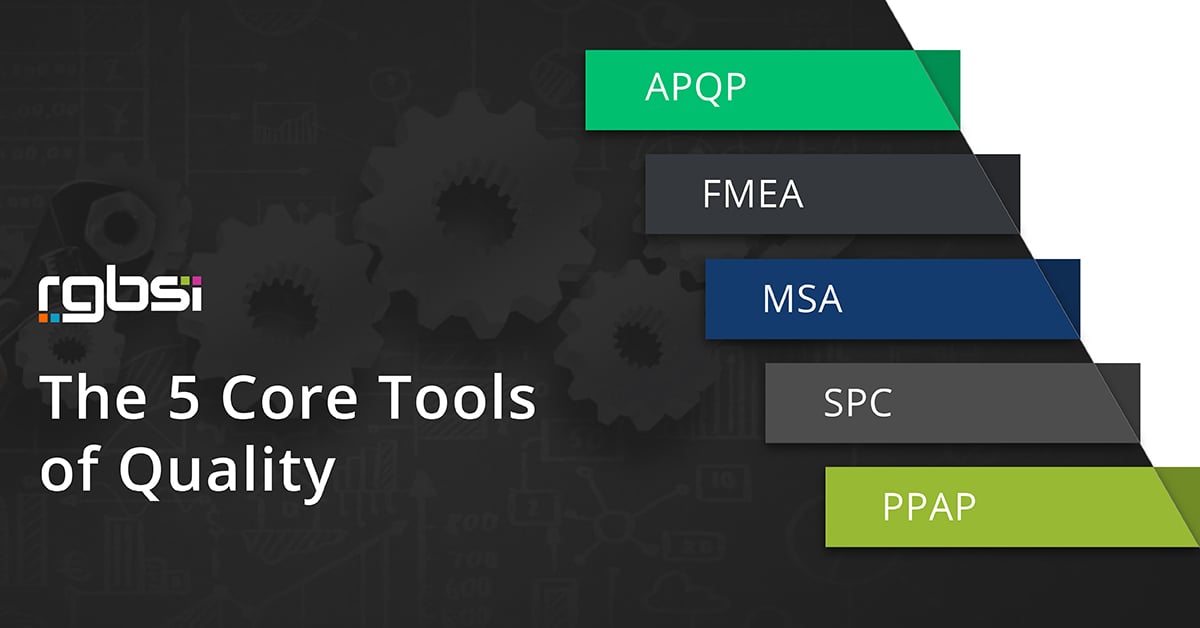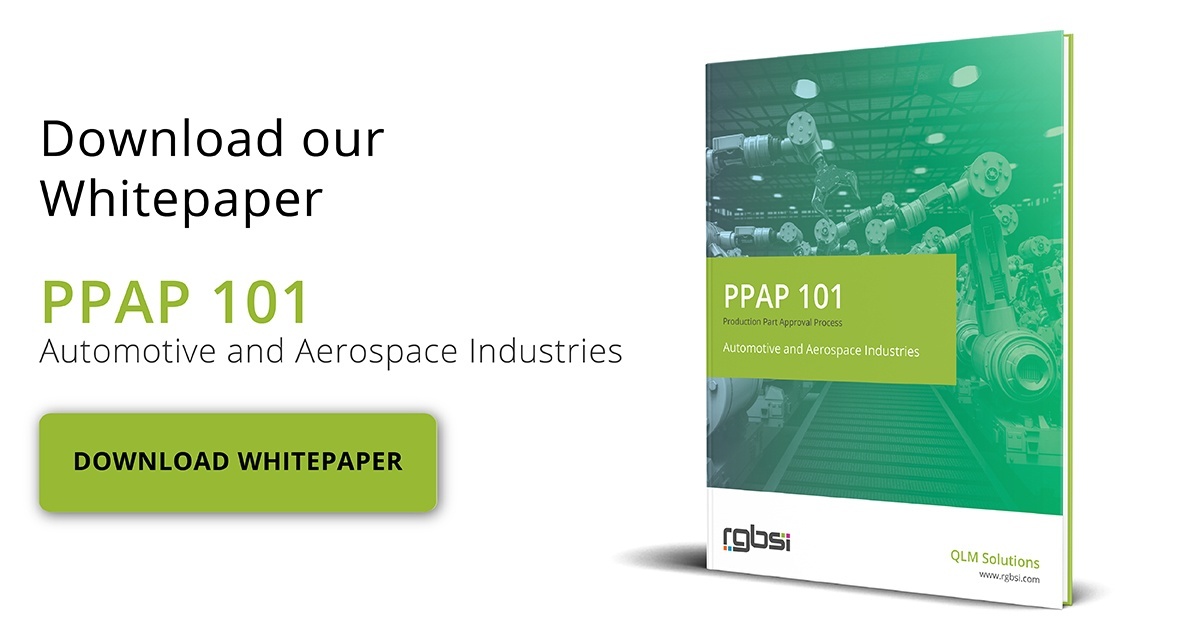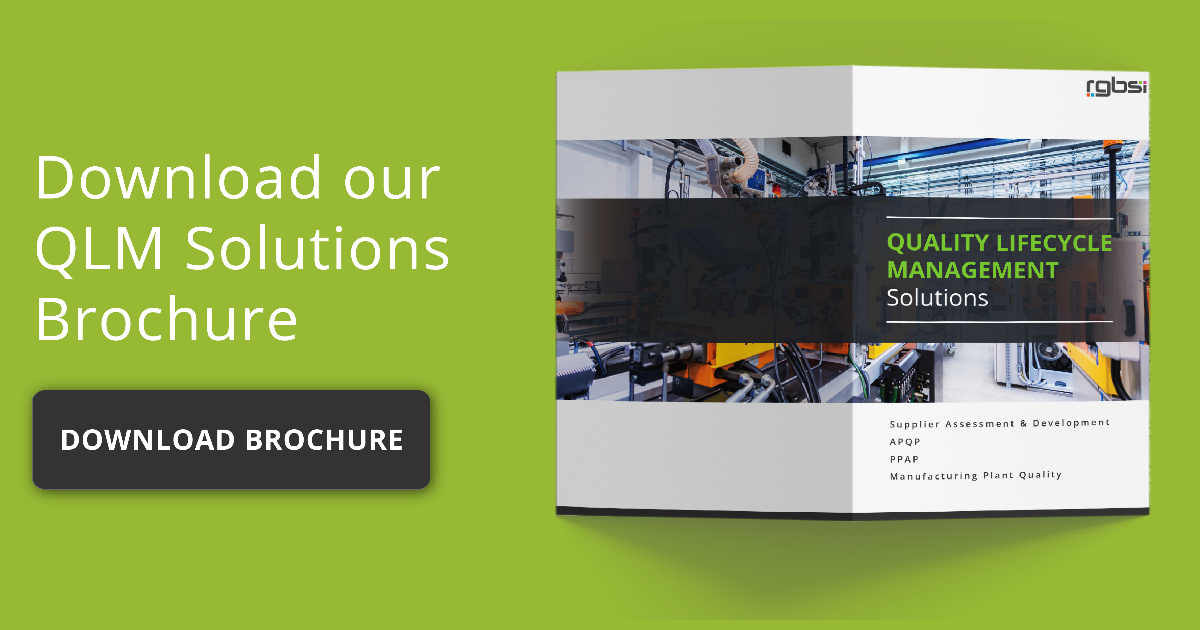
The 5 core tools of quality are constituents of a quality system throughout the product lifecycle to achieve successful manufacturing. They are recognized as standard automotive quality tools by AIAG. Integrated supply chains use the 5 core tools to streamline communication throughout the design and manufacturing processes across suppliers and customers. The 5 core tools of quality are:
Advanced Product Quality Planning (APQP)
Advanced product quality planning (APQP) establishes new products and processes that are successful in meeting customer requirements. APQP helps identify critical to quality sub-systems from the client’s perspective. PPAP is an output of APQP processes and techniques.
The 5 Phases of APQP
- Planning phase
- Product design & development phase
- Process design & development phase
- Product & process validation phase
- On-going production, use & post-delivery service production phase
Failure Mode and Effects Analysis (FMEA)
Failure mode and effects analysis (FMEA) assesses the potential risks of system failure and proposes a plan of detection, prevention and risk mitigation for identifiable failure effects. The method provides valuable insight for better and more reliable quality control. Different types of FMEA exist to evaluate risk in different stages or inputs of the manufacturing process.
Design Failure Mode and Effects Analysis (DFMEA)
DFMEA is used to detect potential design failures of parts before they can make a significant impact on the end users of a product and the business distributing the product. A design flaw in just one part of a whole can have a domino effect leading to an extensive product recall.
Process Failure Mode Effects Analysis (PFMEA)
PFMEA is used by manufacturers to detect potential failures that are rooted in the physical process of producing a part. Each step of the process is carefully analyzed to identify every possible thing that could go wrong.
Measurement Systems Analysis (MSA)
Measurement statistical analysis (MSA) is the practice of using statistical tools such as a gage R&R to determine if a measurement system is capable of precise measurement. The purpose of MSA is to assure that a selected measurement system delivers reliable results with repeatability and reproducibility.
Statistical Process Control (SPC)
Statistical process control (SPC) is the method of collecting measurements on manufacturing processes or products as actionable quality-driven data. This data is used to monitor levels of manufacturing quality and control processes. SPC is a type of feedback system that enables organizations to implement a strategy of prevention to control manufacturing process quality outputs.
The 4 Elements of an SPC System
- The Process
- Performance Information
- Action on the Process
- Action on the Output
Product Part Approval Process (PPAP)
The Production Part Approval Process (PPAP) is a standardized process in the automotive and aerospace industries that helps manufacturers and suppliers communicate and approve production designs and processes before, during, and after manufacture. There are 5 PPAP submission levels which determine the PPAP requirements.
- Level 1: Part submission warrant (PSW) only (and for designated appearance items, an AAR) submitted to the customer
- Level 2: PSW with part samples and limited supporting data
- Level 3: PSW with part samples and complete supporting data
- Level 4: PSW and other requirements proposed by the customer
- Level 5: PSW with part samples and complete supporting data available for review at the supplier’s manufacturing location.
About RGBSI
At RGBSI, we deliver business solutions that close the gap between strategy and execution for global organizations of all sizes. Our portfolio of solutions spans across the verticals of workforce management, engineering, quality lifecycle management (QLM), and information technology (IT). Through strategic partnerships, we help clients enhance performance, adopt innovation, and access global resources.
About RGBSI QLM Solutions
Need help with APQP, PPAP, or other quality areas? At RGBSI, we provide full service quality lifecycle management (QLM) solutions that optimize manufacturing supply chain initiatives. Organizations within automotive, aerospace, and other engineering segments leverage our expertise to validate, manage, and assess their current processes.
Need help with your quality lifecycle management activities? Inquire












